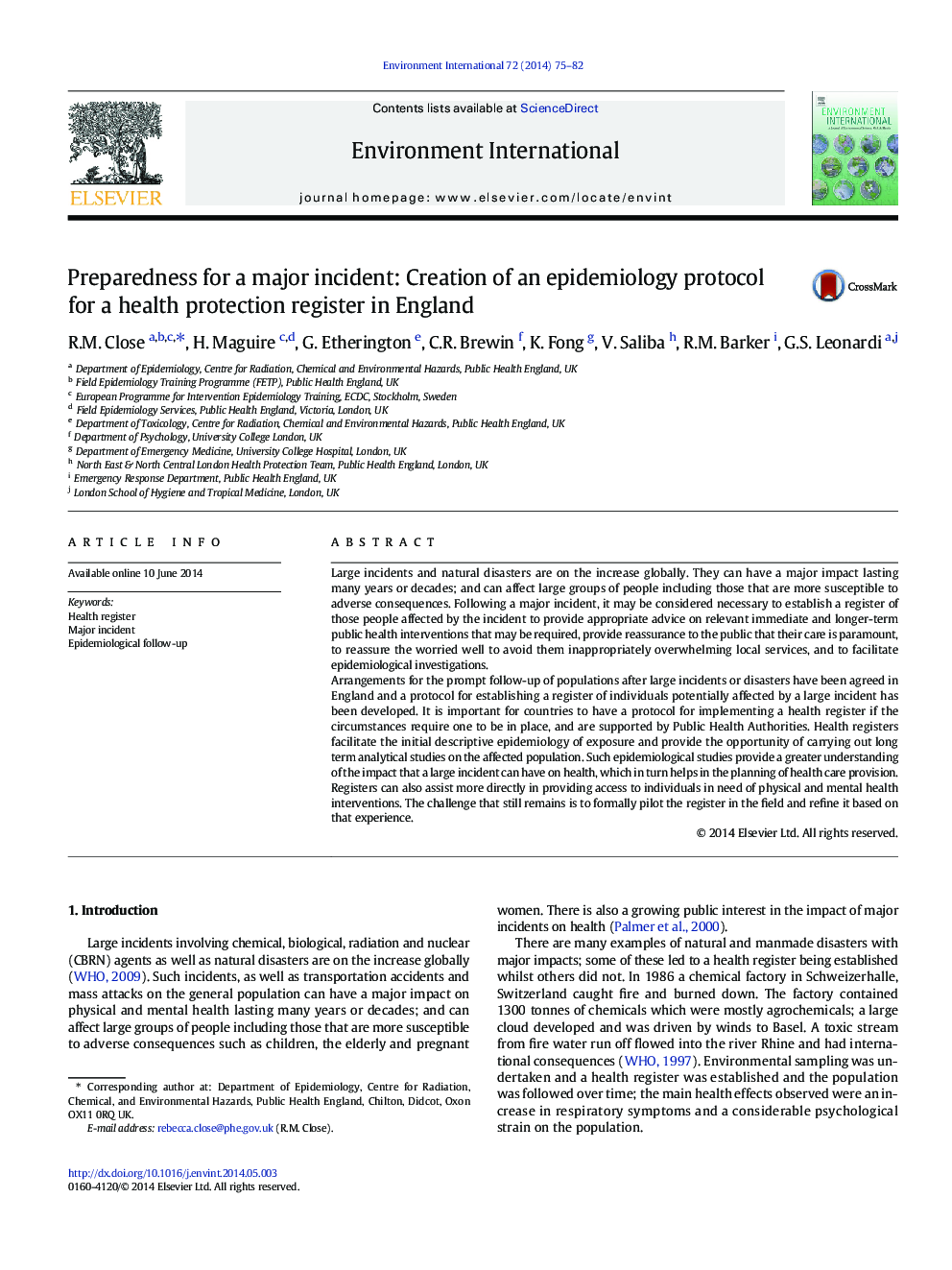| Article ID | Journal | Published Year | Pages | File Type |
|---|---|---|---|---|
| 4422743 | Environment International | 2014 | 8 Pages |
•Large incidents and natural disasters are on the increase globally.•A register of people affected could help public health action in many ways.•A protocol for establishing a health register following an incident was developed.•Health registers can facilitate later follow-up studies of the population.•Register design appropriate to each event would overcome limitations.
Large incidents and natural disasters are on the increase globally. They can have a major impact lasting many years or decades; and can affect large groups of people including those that are more susceptible to adverse consequences. Following a major incident, it may be considered necessary to establish a register of those people affected by the incident to provide appropriate advice on relevant immediate and longer-term public health interventions that may be required, provide reassurance to the public that their care is paramount, to reassure the worried well to avoid them inappropriately overwhelming local services, and to facilitate epidemiological investigations.Arrangements for the prompt follow-up of populations after large incidents or disasters have been agreed in England and a protocol for establishing a register of individuals potentially affected by a large incident has been developed. It is important for countries to have a protocol for implementing a health register if the circumstances require one to be in place, and are supported by Public Health Authorities. Health registers facilitate the initial descriptive epidemiology of exposure and provide the opportunity of carrying out long term analytical studies on the affected population. Such epidemiological studies provide a greater understanding of the impact that a large incident can have on health, which in turn helps in the planning of health care provision. Registers can also assist more directly in providing access to individuals in need of physical and mental health interventions. The challenge that still remains is to formally pilot the register in the field and refine it based on that experience.
